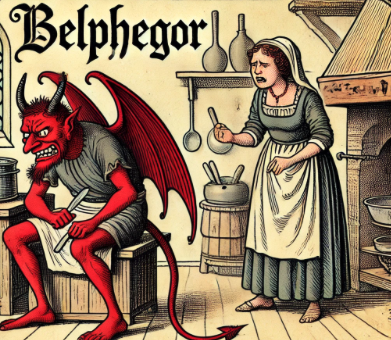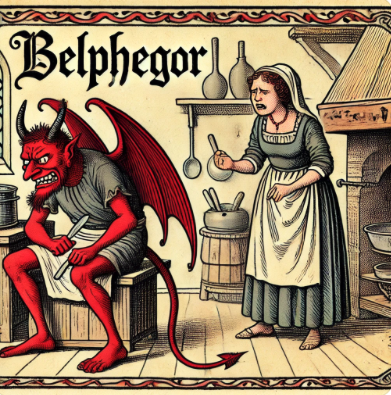
In the twisty corridors of medieval folklore, where demons and deities play with the fates of mortals, few tales are as curious and revealing as that of Belphegor.
According to legend, Belphegor was not merely a garden-variety demon. He held a unique disdain for the joys of married life—a sentiment that set him apart even in the infernal realms.

The other demons, concerned that mortal happiness in marriage might diminish their influence on Earth, devised a plan. They sent Belphegor to the mortal world to sow discord and misery.
However, his mission came with an ironic twist: he had to marry to understand the secrets of why some marriages thrived.
Belphegor’s experience on Earth reads like a satirical tragedy. He married several mortal women, each union supposedly an opportunity to undermine mortal happiness. Yet, each marriage turned into a personal torment for Belphegor.
Far from the quiet manipulator, he found himself beleaguered by incessant nagging and demands. These experiences not only frustrated him but also horrified him to his demonic core.

His repeated attempts to infiltrate and understand the sanctity of marriage ended in abject failure, leading him to a profound realization: the complexities of relationships were far too intricate and taxing for a demon accustomed to the straightforward malice of Hell.
Overwhelmed and disheartened, Belphegor fled back to the underworld, a realm mercifully devoid of marital bonds and the peculiar challenges they presented.
Belphegor’s tale has been echoed through the ages, not just in whispered legends but also in the works of notable writers like Niccolò Machiavelli and Ben Jonson.
Their interpretations of Belphegor’s escapades offer a blend of satire and warning—the idea that even supernatural entities can find themselves outmatched by the trials of mortal intimacy and partnership.

